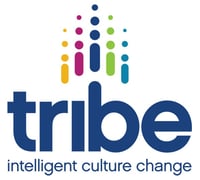What’s your Plan C?
How to keep your people healthy, safe and engaged
Latest Corona Virus precautions are requiring businesses to rethink the way their people work together. There is plenty of research that tells us that when people work remotely, the reduced proximity can lead to a lack of camaraderie, people feel isolated and that begins to destroy trust. Trust is essential for a strong culture, weak culture causes safety and business issues. The last thing we should be doing in this time of uncertainty is to close down open communication and risk isolating people.
To help our clients to get through the next few months, and keep their ‘people culture’ together, we’ve taken our highly engaging face-to-face workshop, team huddles and culture training tools and turned them into ‘virtual get-together learning experiences’. These provide a viable option to maintain a real-time community feel and to motivate and inspire people. We are calling this – Plan C.
There is nothing quite like getting your team together all in the same place
We know that being together encourages meaningful conversations and debate, engaging speakers are authentic and in the moment and inspire a sense of psychological safety, where people feel they can speak up and share stories. Tribe have made a success of running events like this to inspire and sustain our client’s business culture.
If you put as much energy and thought into setting up an online experience as you would a face to face event, you really can reap the benefits and your business culture can be all the stronger for making the effort to get it right.
Here are SEVEN TIPS from Tribe Culture Change Creative Director, Clare Solomon about how to deliver highly engaging virtual get-togethers.
1. Choose a reliable webinar platform
Especially if you’re expecting a big turnout. GoToWebinar and WebEx are good especially for larger webinars
2. Be prepared
There’s a chance that even with the appropriate platform, you may run into a technical glitch. So anticipate problems that might occur and have some safeguards in case you run into a worst case scenario.
Have a Backup Computer – log in on two computers, this way, if the primary machine crashes or the session window is accidentally closed out, the presenter can continue from the second computer.
Moderators and presenters should be on separate networks so if one system drops out, the other can continue to advance the slides for the audience and keep attendees up to date on any technical glitches occurring.
3. We can see you
Webinars are much more successful if every attendee is sitting in front of their laptop or webcam – so that their face is clear to see. Let everyone know in advance that we want them to turn on their webcam – avoid teams dialling in together using one webcam at the end of the table.
4. Keep checking in with people
Make sure your session is well planned and on point. Keep presentations to short bursts – every 6 minutes throw in an engagement that requires people to respond (take part in a poll, answer a question, go to a virtual breakout room for a discussion).
5. Create virtual huddles
Some webinar platforms will allow you to create virtual break out rooms, so you can split participants into smaller teams and get them to work together – just like you might if you were running a workshop. Your facilitator can drop into each room to see how they are getting on and then all come back into the main ‘virtual room’ to present back.
6. Think outside the box
Use actors to demonstrate scenarios and tell stories. Run a virtual game show, with graphics, sound effects and a professional host. How about throwing a virtual ball to each other, to demonstrate more effective team work or process flow… Almost anything is possible.
7. Make a song and dance out of it
Just like you would with a live event, send invitations in advance, with an exciting agenda. How about sending out a goody bag in advance, including items that individuals can use to support your messages?
And think about the benefits; you’ve saved on travel and hotel expenses, done your bit for the environment by taking cars off the road for a few weeks, and protected the health of your teams and their families.
About Clare Solomon
Creative Director
I’m a founder and Creative Director for Tribe with over 25 years of experience as an Employee Engagement and Internal Communications Consultant including running my own internal communications agency prior to forming Tribe in 2016.



